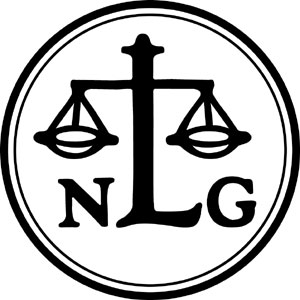Brownstone Law Texas Appeals Lawyers: Your Guide to Successful Legal Appeals
Brownstone Law Texas Appeals Lawyers: Your Guide to Successful Legal Appeals
Blog Article
Optimizing Your Appeal: Exactly How Professional Aid Can Improve Your Appellate Approach
In the realm of appellate campaigning for, the significance of using expert help to fortify one's appellate technique can not be overstated. By enlisting the experience of specialists skilled in the nuances of appellate practice, individuals and companies can open a riches of advantages that prolong much beyond traditional legal depiction.
The Significance of Appellate Competence
When browsing the detailed realm of appellate law, possessing customized proficiency in appellate treatments and techniques is vital for accomplishing desirable results. Appellate know-how encompasses a deep understanding of the nuances of appellate practice, which varies substantially from test advocacy. Appellate lawyers have to have a keen eye for lawful study, influential writing, and dental advocacy abilities tailored to the appellate court's details demands.
An appellate specialist brings an unique ability set to the table, developed via years of experience dealing with charms and remaining abreast of developing lawful criteria. This know-how enables them to craft engaging legal arguments, recognize crucial issues that reverberate with appellate judges, and prepare for and counter rival advice's disagreements successfully.
Additionally, appellate professionals are well-versed in the facility procedural regulations governing allures, making sure that all filing target dates, format requirements, and administrative concerns are meticulously adhered to. By leveraging their specialized knowledge, appellate attorneys can navigate the appellate procedure with accuracy and skill, optimizing their customers' opportunities of success on allure.
Strategic Evaluation and Situation Analysis
Structure upon the structure of appellate competence, tactical evaluation, and situation assessment play critical roles in formulating a durable appellate strategy. Critical evaluation entails a comprehensive examination of the situation, determining crucial problems, staminas, and weak points. It needs a deep understanding of the lawful landscape, procedural guidelines, and possible debates that can sway the appellate court. By carrying out a comprehensive calculated evaluation, appellate specialists can pinpoint one of the most efficient strategy to offering an engaging instance on allure.
Situation evaluation is just as important, concentrating on evaluating the factual and lawful facets of the situation to establish its feasibility on appeal. This procedure involves inspecting high court records, evidence, and judgments to identify errors or issues that can develop the basis of a successful appeal. A meticulous instance evaluation enables lawyers to craft persuasive disagreements that attend to the core issues and persuade the appellate court to rule in their customer's favor.
In mix, strategic evaluation and instance evaluation develop the keystone of an effective appellate technique, assisting lawyers in browsing complex legal terrain and optimizing their opportunities of success on charm.
Crafting Compelling Legal Debates
Crafting compelling lawful arguments is an essential ability that distinguishes proficient appellate specialists in providing convincing cases before the court. Efficient legal argumentation needs a deep understanding of the regulation, vital evaluation of the realities, and the capacity to connect intricate concepts in a persuasive and clear manner. When crafting legal disagreements, appellate professionals have to carefully consider the appropriate legal principles, precedents, and policy implications to construct a solid and systematic narrative that supports their customer's setting.

Browsing Procedural Intricacies
To effectively navigate step-by-step complexities in appellate method, professionals need to have a thorough understanding of the relevant regulations of procedure and court procedures. look at more info Appellate procedures vary amongst jurisdictions, necessitating an eager understanding of specific demands governing concerns such as jurisdictional deadlines, submitting procedures, and format guidelines. Failing to abide by these step-by-step policies can result in pricey hold-ups, sanctions, and even termination of the allure.
One key aspect of browsing step-by-step complexities is identifying the relevance of protecting concerns for charm at the high court level. This entails making prompt objections, movements, and deals of evidence to make certain that appellate courts have a correct document to examine (Brownstone Law). In addition, specialists should understand the art of drafting succinct and clear appellate briefs that comply with formatting demands and blog properly present legal disagreements
In addition, comprehending the ins and outs of dental argument procedures, consisting of time restrictions and the decorum anticipated in appellate courts, is essential for a successful allure. By staying in harmony with these procedural ins and outs, practitioners can improve their chances of accomplishing a favorable end result for their clients on appeal.

Leveraging Specialized Legal Knowledge
Specialized lawful knowledge plays a crucial duty in strategically advancing appellate disagreements and maximizing the possibilities of success in intricate lawful proceedings. Appellate cases commonly entail elaborate lawful issues that need a deep understanding of details locations of law.
Specialized legal knowledge enables specialists to identify key precedents, regulations, and lawful teachings that are pertinent to the case handy. This comprehensive understanding allows them to prepare for possible obstacles, counterarguments, and chances for convincing advocacy. Additionally, experts can use useful perspectives on how the law has been translated and used in comparable instances, aiding to shape a more reliable appellate method.

Conclusion
In conclusion, specialist aid can substantially boost your appellate method by supplying experience in browsing step-by-step complexities, crafting compelling lawful disagreements, and leveraging specific legal knowledge. By making use of the abilities and experience of appellate professionals, individuals can maximize their opportunities of success in the appellate procedure. Calculated analysis and situation assessment are important components of developing a strong appellate approach that can help to increase the allure of your situation.
In the world of appellate advocacy, the importance of employing expert support to fortify one's appellate strategy can not be overstated.When browsing the intricate world of appellate regulation, having specific proficiency in appellate procedures and approaches is vital for achieving desirable outcomes. Appellate experience includes a deep understanding of the subtleties of appellate practice, which varies considerably from test advocacy. Appellate attorneys have to have a keen eye for lawful research, influential writing, and dental advocacy abilities customized to the appellate court's particular needs.
Building upon the foundation of appellate proficiency, critical analysis, and instance assessment play pivotal functions in creating a robust appellate approach. (Brownstone Law)
Report this page